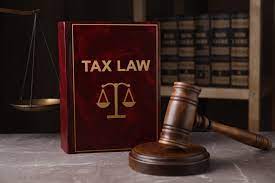Tax Resolution Services – Which Service is Best for Your Situation?Tax Resolution Services – Which Service is Best for Your Situation?
There are many different types of tax resolution services available, and the type of service that you need will depend on your situation. Most tax resolution services are designed to help people with their tax problems, which often stem from overstepping the law or carelessness. Tax resolution can help you avoid paying even more taxes. The services that tax resolution firms offer can help you make better business decisions and avoid the hassle of paying more taxes than you should. The best tax resolution service companies can provide you with both tax relief and advice on how to plan for the future.

In case you need help with your tax resolution, Defense Tax Partners in Oregon can help you. With their experience and professional knowledge, they can help you manage your finances and get back the money you owe the IRS. You can also choose between paying the full amount owed or delaying the collection. By hiring a tax resolution company, you can get all of your tax problems resolved. This can help you avoid paying a large amount in taxes that you owe, and can also ease your tension with the IRS.
Another option for tax resolution is to negotiate with the IRS. The IRS often has automated tools that can contact you if your tax debt is out of control. If you cannot pay your bill in full, you can negotiate with the IRS and get an Installment Agreement. Under this plan, you make affordable monthly payments – some of these payments may vary with your seasonal income. Then, when the agreement is over, you make no further payments. During this time, the remaining amount will be forgiven.
Tax issues affect millions of Americans every year. They range from unfiled returns to levies and garnishments. An established tax attorney in Oregon will ask you about unfiled returns – one of the most common barriers to a successful resolution. Filing an accurate tax return is essential to avoid any misunderstanding with the IRS. If you’ve filed an inaccurate tax return, you’re probably liable for a levy or garnishment. If you’ve made a mistake, contacting a tax resolution service can help you avoid paying these penalties.
Tax resolution specialists also help you identify tax liens. Tax liens are claims against a property by tax agencies. Unpaid taxes may lead to the IRS levies your assets. You need to get them discharged or removed to prevent foreclosure. Tax resolution services can protect you and your property against these liens. They will also confirm that any liens have been discharged. You can then move on to other areas of your life. The IRS is not going to be able to foreclose on your home without a tax resolution specialist.
Another popular way to get out of debt is by negotiating an installment agreement with the IRS. If you can afford the payments, this is a proven method that can put you on the road to financial recovery. You can work out an agreement with the IRS to pay off part of your tax liability and still receive some benefits. This option allows you to make payments over the course of months or years, and it is approved by the IRS. By entering into an installment agreement, you’ll avoid paying additional penalties and put yourself on the road to financial recovery.
If you don’t have the funds to pay your taxes in full, the IRS may begin levying your assets. In these cases, you can work out a payment plan with a tax professional who will help you negotiate directly with the IRS agents. Tax resolution professionals can also set up installment agreements and make offers in compromise. The best way to make an offer in compromise is to offer less than what you owe and get the IRS to accept it. Make sure that you make your offer in a way that will best suit you.
A tax resolution specialist can help you avoid being charged with tax penalties if you are unable to pay the full amount of your debt. By accepting an offer in compromise, the IRS will put a hold on its collection activities for a certain period of time. Afterwards, the IRS will reassess your ability to pay and your economic situation. Most tax resolution specialists specialize in these cases. You can learn more about tax resolution by reading about these three types of cases and how to apply them to your own situation.
Tax resolution services are the best way to solve your tax issues. The experts can help you resolve your debt with the IRS, avoid wage garnishment, and other unpleasant consequences. The IRS also doesn’t like it when a taxpayer refuses to respond to their outreach or settlement efforts. You should contact a tax resolution firm immediately if you are facing issues with your taxes. And remember that a tax resolution firm can help you get the most money possible.
 The word ‘fake income’ is often used to describe the behavior that would constitute income tax evasion. When a person files an incorrect tax return, they are committing a crime and are subject to criminal prosecution. As long as they are honest about their income, they will not face any penalties, but if the IRS suspects them of hiding income, they may be prosecuted for fraud or other types of illegal activity.
The word ‘fake income’ is often used to describe the behavior that would constitute income tax evasion. When a person files an incorrect tax return, they are committing a crime and are subject to criminal prosecution. As long as they are honest about their income, they will not face any penalties, but if the IRS suspects them of hiding income, they may be prosecuted for fraud or other types of illegal activity. identity theft. These are just a few of the various crimes that tax fraud can involve. The government has to prove that the defendant committed the crime in order to convict it. The U.S. tax code is quite complex, and it is very difficult for tax attorneys to understand it without the help of an expert.
identity theft. These are just a few of the various crimes that tax fraud can involve. The government has to prove that the defendant committed the crime in order to convict it. The U.S. tax code is quite complex, and it is very difficult for tax attorneys to understand it without the help of an expert. There are different kinds of taxes that you need to pay in New Jersey. These taxes include income tax, property tax, vehicle tax, sales tax, Medicare, estate tax, and inheritance tax. If you do not have much idea about the tax implication and do not understand what tax you need to pay, you can hire a tax attorney to make you understand all about the new tax laws. A
There are different kinds of taxes that you need to pay in New Jersey. These taxes include income tax, property tax, vehicle tax, sales tax, Medicare, estate tax, and inheritance tax. If you do not have much idea about the tax implication and do not understand what tax you need to pay, you can hire a tax attorney to make you understand all about the new tax laws. A